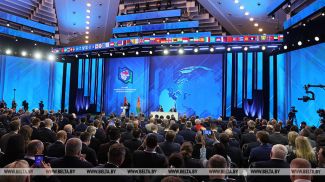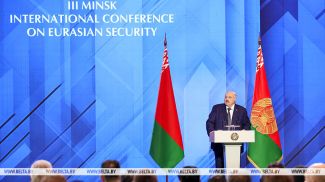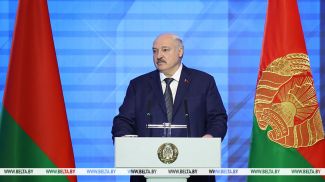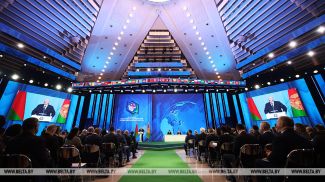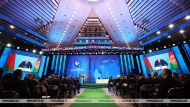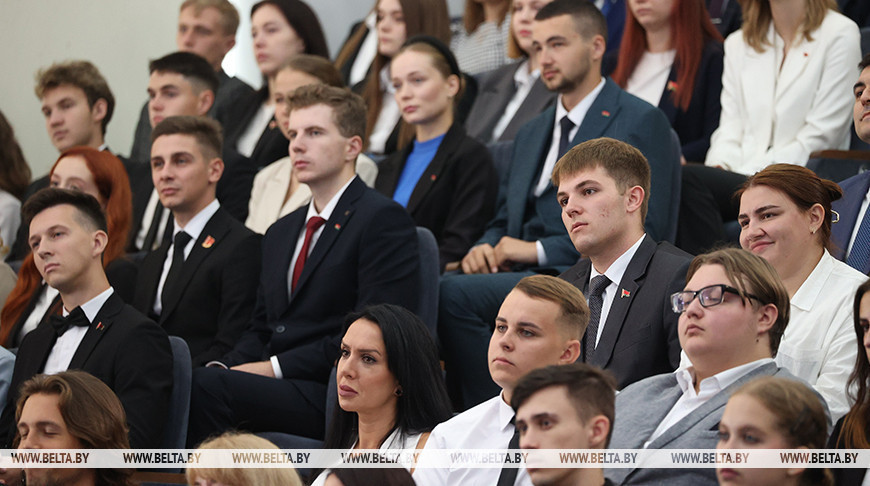
VITEBSK, 2 September (BelTA) — Belarusian President Aleksandr Lukashenko has advised young people in regions not to move to Minsk, as he met with students of Vitebsk Oblast higher education institutions at a Q&A session titled as Open Microphone with the President on 2 September, BelTA has learned.
When asked whether there was any difference between regional and capital universities and levels of teaching in them and which ones they should seek admittance to, Aleksandr Lukashenko pointed out that Belarus' regions provide good conditions for life and development. The level of teaching in regional higher education institutions does not differ from that in the capital. Aleksandr Lukashenko told the students that he had studied at a regional higher education institution. He knew from personal experience about hard work in rural areas. The president strongly desired to change people's lives in a positive way. "I tell you sincerely, not because I want to persuade you: I was so eager to do something for ordinary people," the president explained. "My mother worked as a milkmaid. I wanted to do something good for these people [who work in agriculture]. I realized that I had to go to the village and do something for them." That is why, as the head of state explained, after graduation he asked to work in one of the most backward farms in his small homeland. "I said: I will go there, I promise you that it will be the best farm," Aleksandr Lukashenko recalled his student days.
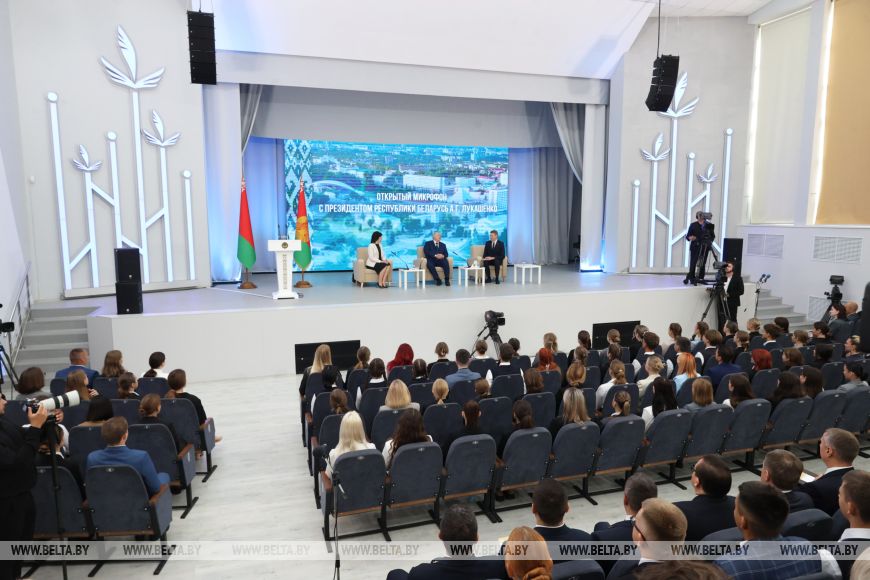
The president mentioned, however, that he had an idea to enter the faculty of journalism. "My future mother-in-law said: ‘No, you will enter the faculty of history, you know history.’ My mother-in-law is a good woman. If it wasn’t for her… She is my second mother," the head of state remarked.
"It doesn't matter where you will study. Curricula, methodology, and other things are practically the same on this or that specialty. Certainly, professors are different, but I am sure that professors in regional universities are on par with those in Minsk universities," Aleksandr Lukashenko said. According to him, the main thing now is the desire to acquire a specialty and become a real professional. "I had a terrible desire to help people, to change something," the president said. “But only in favor of ordinary people.”
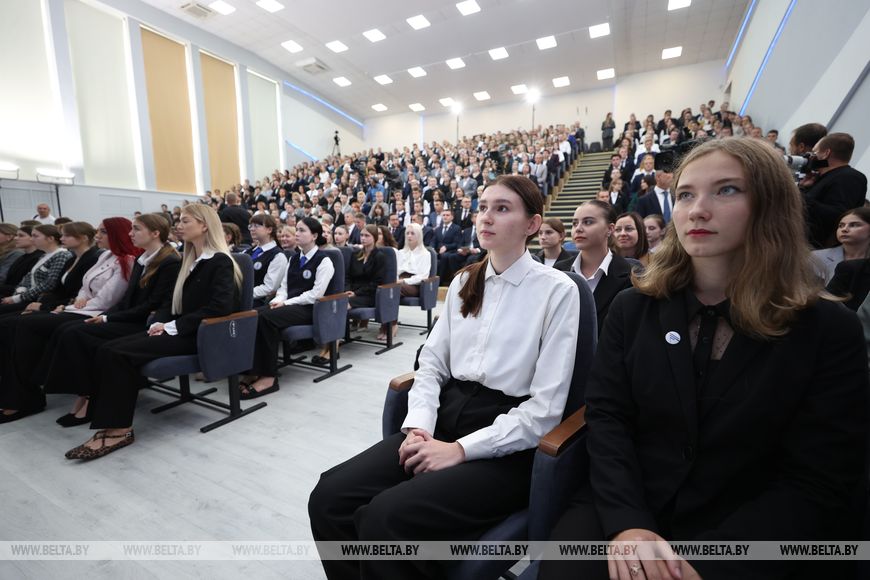 "If you have this desire – a true desire to help, not just to finish university, do something for yourself and be rich (it's not bad either, if you do something for yourself, for your family). The main thing is that you have to want to help people," the head of state added.
"If you have this desire – a true desire to help, not just to finish university, do something for yourself and be rich (it's not bad either, if you do something for yourself, for your family). The main thing is that you have to want to help people," the head of state added.
"Don't worry and don't go to Minsk," Aleksandr Lukashenko advised. "Minsk is crowded, you are a stranger." In this regard, the president mentioned his personal experience. As a person born in rural area, he prefers to live not in the capital, although he has all the opportunities for it, but in the countryside.
"My advice to you is not to strive to move [to Minsk]. If you have a desire, you will get certain knowledge, you will be always recognized. Because we have a huge shortage of such smart people who want to do something. I mean for people, not for the homeland, for the country" the head of state pointed out. "You can get the same knowledge both at Belarusian State University and Vitebsk State University [named after Piotr Masherov]. There are the best and the worst professors, but on average they are the same everywhere. Even in regional universities they are often better.”
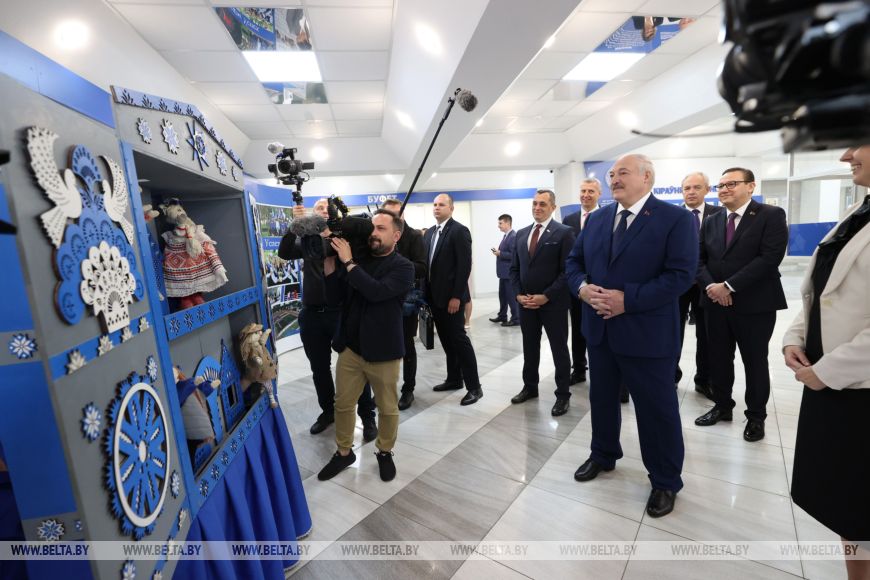
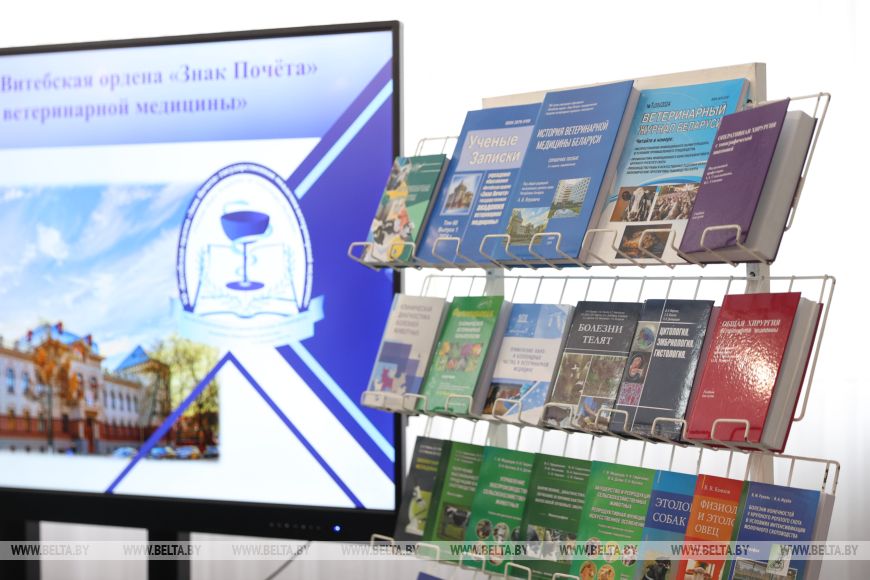
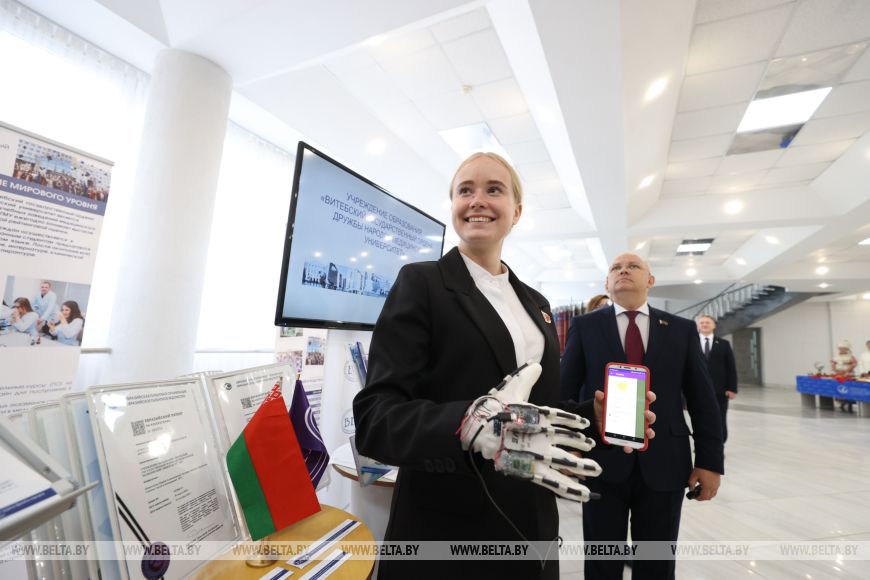
When asked whether there was any difference between regional and capital universities and levels of teaching in them and which ones they should seek admittance to, Aleksandr Lukashenko pointed out that Belarus' regions provide good conditions for life and development. The level of teaching in regional higher education institutions does not differ from that in the capital. Aleksandr Lukashenko told the students that he had studied at a regional higher education institution. He knew from personal experience about hard work in rural areas. The president strongly desired to change people's lives in a positive way. "I tell you sincerely, not because I want to persuade you: I was so eager to do something for ordinary people," the president explained. "My mother worked as a milkmaid. I wanted to do something good for these people [who work in agriculture]. I realized that I had to go to the village and do something for them." That is why, as the head of state explained, after graduation he asked to work in one of the most backward farms in his small homeland. "I said: I will go there, I promise you that it will be the best farm," Aleksandr Lukashenko recalled his student days.

The president mentioned, however, that he had an idea to enter the faculty of journalism. "My future mother-in-law said: ‘No, you will enter the faculty of history, you know history.’ My mother-in-law is a good woman. If it wasn’t for her… She is my second mother," the head of state remarked.
"It doesn't matter where you will study. Curricula, methodology, and other things are practically the same on this or that specialty. Certainly, professors are different, but I am sure that professors in regional universities are on par with those in Minsk universities," Aleksandr Lukashenko said. According to him, the main thing now is the desire to acquire a specialty and become a real professional. "I had a terrible desire to help people, to change something," the president said. “But only in favor of ordinary people.”

"Don't worry and don't go to Minsk," Aleksandr Lukashenko advised. "Minsk is crowded, you are a stranger." In this regard, the president mentioned his personal experience. As a person born in rural area, he prefers to live not in the capital, although he has all the opportunities for it, but in the countryside.
"My advice to you is not to strive to move [to Minsk]. If you have a desire, you will get certain knowledge, you will be always recognized. Because we have a huge shortage of such smart people who want to do something. I mean for people, not for the homeland, for the country" the head of state pointed out. "You can get the same knowledge both at Belarusian State University and Vitebsk State University [named after Piotr Masherov]. There are the best and the worst professors, but on average they are the same everywhere. Even in regional universities they are often better.”
The participants of the meeting asked the president what his favorite university in the country was. "This is a provocation," he answered humorously. "Even in this hall I can't say that this is Masherov University, because there are representatives of different universities here". According to Aleksandr Lukashenko, such a question is similar to asking a person who has several children who is the most beloved of them. "You are all my children," the president figuratively replied to the question, which was met with applause. "Forgive my immodesty, universities are something that, if not created, has been reformed and recreated by me several times. I love and respect you all.”







